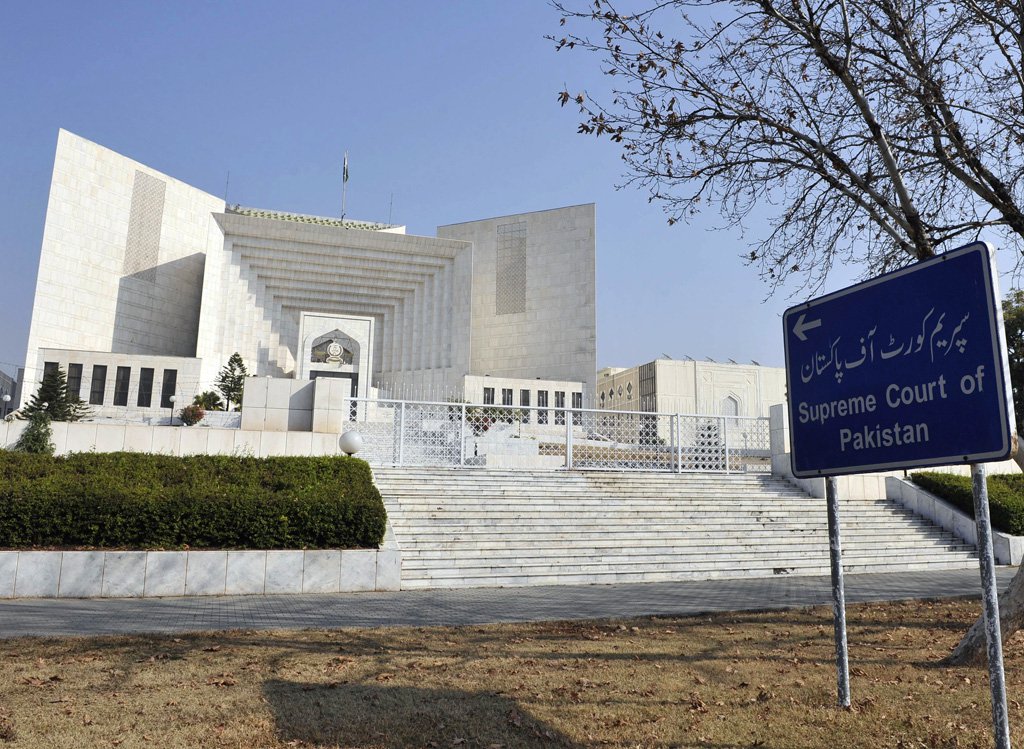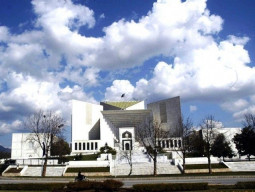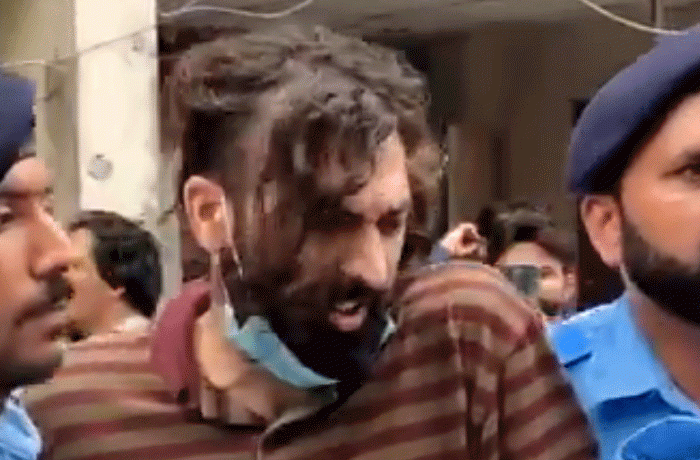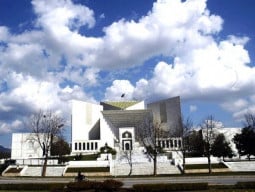
The Supreme Court has held that the burden is on the National Accountability Bureau (NAB) to satisfy that “reasonable grounds” exist for the rejection of post-arrest bail -- taking a liberal view on the matter.
The court also noted that refusing the accused bail violated fundamental rights in case if it was unsatisfied that there were reasonable grounds to believe that they were guilty.
“In order to ascertain whether ‘reasonable grounds’ exist or not, the court should not probe into the merit of the case, but restrict itself to the material placed before it by the prosecution (NAB) to see whether some tangible material/evidence is available against the accused which may lead to the inference of his guilt,” read an eight-page judgment authored by Justice Syed Mansoor Ali Shah in a post-arrest bail matter wherein the accused was behind bars since April 2019.
“Mere accusation of an offence would not be sufficient to disentitle an accused from being bailed out. There should be ‘reasonable grounds’ as distinguished from mere allegations or suspicion,” it added.
A three-judge bench of the apex court led by Justice Umar Ata Bandial heard the matter. Legal experts believe that the present judgment will protect the civil liberties of citizens.
In the recent past, constitutional courts took a strict view in granting bail to NAB-accused persons.
The SC noted that pre-trial arrest and detention of the accused caste a heavy burden on the conscience of the court.
“If after trial the accused is acquitted there is no recompense or reparation for the loss of his valuable years spent behind bars including its economic, social and psychological impact on the accused, as well as, his family or near ones due to denial of bail,” the verdict read.
“The sufficiency of material/evidence connecting the accused with the crime must therefore be viewed with utmost care and caution at the bail stage.”
Giving guidelines to the NAB on his power of arrest, Justice Shah in the judgment noted that the National Accountability Ordinance (NAO) required chief of the anti-graft body to form an “opinion” if proceedings are to be initiated against any person and the matter referred for inquiry or investigation.
“After appraising the material and the evidence collected during the inquiry or investigation, [if the] Chairman NAB finds that there is ‘sufficient material’ to justify filing of a reference, [should then] refer the matter to the Accountability Court for trial.”
The court further noted that while Section 24(a) of the Ordinance mandated that NAB shall, as soon as may be, inform the accused of the “grounds” and “substance” on the basis of which they had been arrested.
Read NAB warned not to make recoveries by ‘terrorising’ people
The judgment read that section 5(a) defined that the "accused" as a person in respect of whom there were “reasonable grounds” to believe that they were or had been involved in the commission of any offence to be tried under the Ordinance.
“Section 12(a) states that the Chairman NAB or the Court trying an accused for any offence as specified under the Ordinance, may, at any time, if there appear reasonable grounds for believing that the accused has committed such an offence, order the freezing of his property. The combined reading of all these provisions of the Ordinance leaves no room for doubt that the law authorises proceedings against a person accused of an offence under the Ordinance, and for the freezing of his property, only when there are reasonable grounds for believing that the accused has committed an offence to be tried under the Ordinance.”
The verdict read that it needed hardly any argument to state that provisions of Section 9(b) of the Ordinance being sub-constitutional legislation did not affect the constitutional jurisdiction of the high courts under Article 199 of the Constitution.
“Clauses (1)(a)(ii) and (1)(b)(i) of Article 199 empower the High Courts to pass orders of the kind of writ of certiorari and writ of habeas corpus against persons performing functions in connection with the affairs of the Federation, a Province or a local authority and Clause (1)(c) of that Article authorises to make an order giving appropriate directions to any person or authority for the enforcement of any of the Fundamental Rights.”
Justice Shah further added that such orders, under Article 199, could also be passed in relation to the actions of arrest and detention of a person by an executive authority.
“That is why this court (SC) held in Asfandyar Wali v. Federation that the High Courts have the power to grant bail, under Article 199 of the Constitution, to any person accused of an offence under the NAB Ordinance, independent of any statutory source of jurisdiction and notwithstanding the prohibition contained in section 9(b) of the Ordinance.”
The court pointed out that under the country’s democratic constitutional scheme, firmly anchored in the rule of law, the constitutional courts are to “jealously protect and safeguard the fundamental rights of a person”.
“The High Court, under Article 199, has the power to judicially review the order passed by the Executive, viz, Chairman NAB or some other authorized officer of the NAB, regarding arrest and detention of a person. Article 4 mandates that no action detrimental to the life, liberty, body, reputation or property of any person shall be taken except in accordance with law.”
The SC noted that a high court while exercising its jurisdiction under Article 199 of the Constitution for the enforcement of fundamental rights could pass appropriate orders, which include an unconditional release or release on bail, to grant the relief to the aggrieved person. “It is for the enforcement of fundamental rights under the Constitution and not the sub-constitutional statutory grounds provided in Section 497 CrPC, that this Court has been granting bails to the accused persons in NAB cases in exercise of constitutional jurisdiction under Article 199 read with Article 185(3) of the Constitution, mainly on the grounds of: (i) delay in conclusion of the trial, (ii) life-threatening health condition of the accused, and (iii) non-availability of sufficient incriminating material against the accused.”





















COMMENTS (2)
Comments are moderated and generally will be posted if they are on-topic and not abusive.
For more information, please see our Comments FAQ